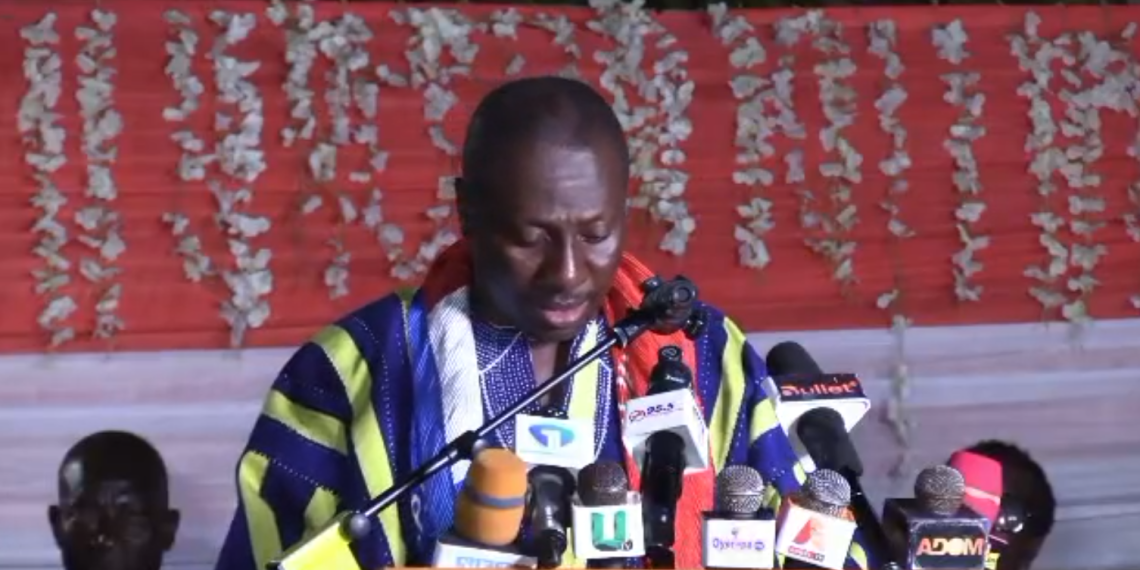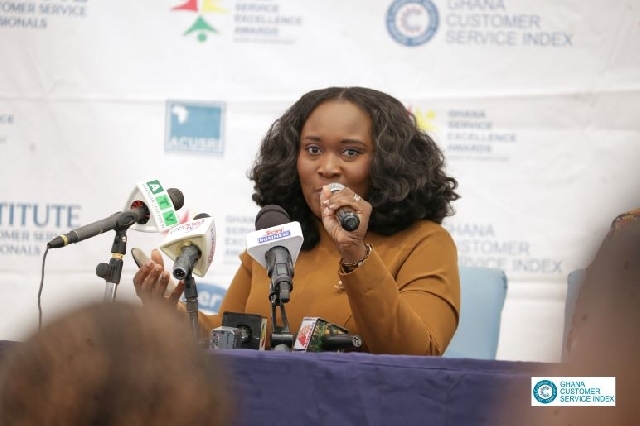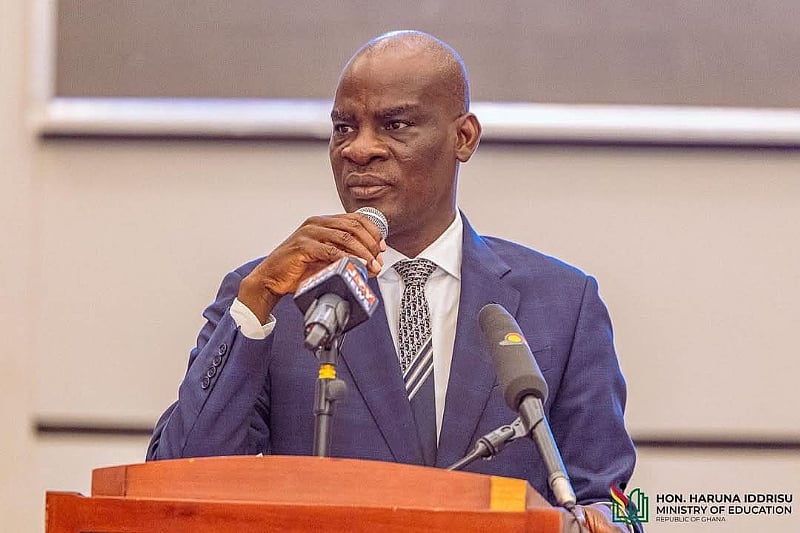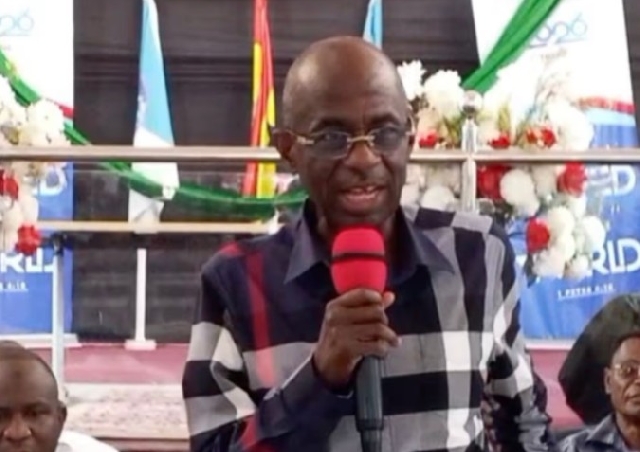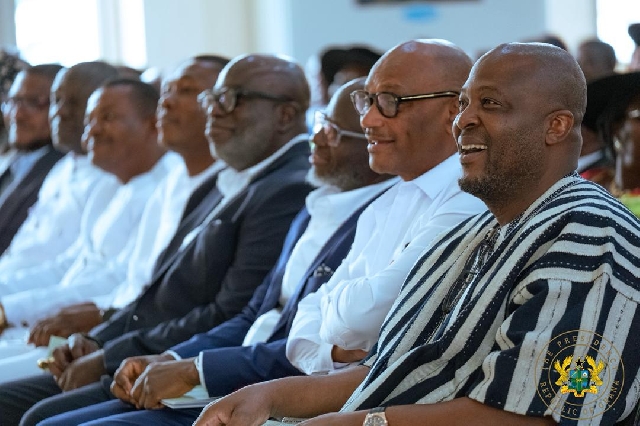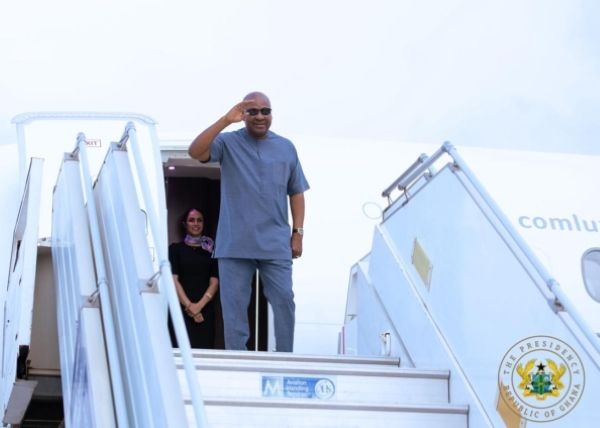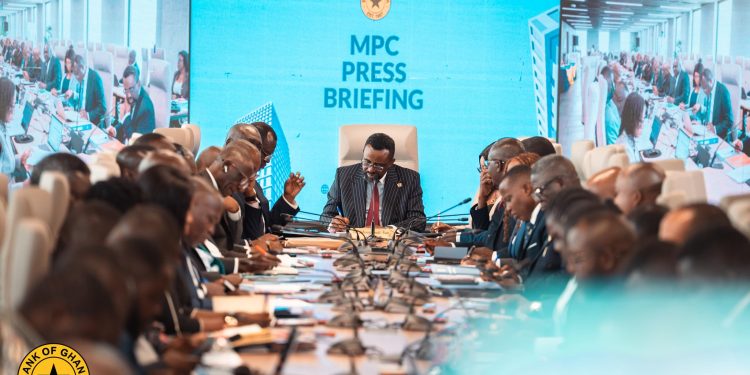Ghana at a Crossroads –
A Presentation by His Excellency John Dramani Mahama, Former President of the Republic of Ghana.
Comrades, ladies, gentlemen, my brothers and sisters. Thank you for making time to join me, tonight, those here in person, and the millions from across our beloved country and the world, via the power of information and communication technology.
Some of you may not know this but I loved and studied history all the way to university level and one of the books that absolutely enthralled me was a book titled “Makers of Civilisation.”
In that book you will find many figures from the past – men and women whose names have been written in letters of gold and who have been immortalized; remembered through the ages. Some of these celebrated historical icons were artists, physicians, engineers, philosophers, military figures, kings, pastors who changed the world by boldly stepping out and challenging the status quo.
In the spirit of May Day and the celebration of workers, I say Ayekoo to us all, for our continuous contribution to the success of this country and its development. Just like the past, there are many gallant workers of today whose stories would have regaled and inspired us if told.
If there was ever any doubt, we know from history that you are the people who make our society and our nation what it is. We must join hands to ensure that we restore our nation on the path to prosperity and opportunity for all our people.
We have always sang the first stanza of our national anthem, which asks for God’s blessings on our homeland Ghana and enjoins us to resist oppressors’ rule. Many have not taken the time to observe the second stanza of our national anthem. The lyrics bear reflection:
Hail to thy name, O Ghana,
To thee we make our solemn vow:
Steadfast to build together, A nation strong in Unity,
With our gifts of mind and strength of arm, Whether night or day, in mist or storm,
In every need, whate’er the call may be,
To serve thee, O Ghana, now and evermore.
This stanza calls for a nation strong in unity and enjoins us with our gift of mind and strength of arm to serve our motherland Ghana, now and evermore.
This is a call to service to our motherland, a call requiring that every one of us, regardless of background, religion, ethnicity, profession, political orientation, economic status, age or gender unite while offering the gifts of our mind and strength of our arm.
Sitting on the fence is not an option in nation building. History will not remember us kindly if we accept the gradual degradation of our society and do not make an attempt to inspire ourselves to make a difference in our generation.
A NATION AT THE CROSSROADS
Countrymen and women, Ghana our dear nation is at a Crossroads, and we must tarry a while and reflect deeply on the road that we must take. The wrong choice leads us down an easy path of chaos and destruction. The right choice would lead us up a path of prosperity and dignity, but with hard work and sacrifice.
My countrymen and women, I can assure you that as our forebears did in the past, if we come together – united as one – there is no task that will be insurmountable.
The future is bright if we rebuff those who seek to divide us for their personal gain, and if we open the opportunities of our country to all our citizens irrespective of ethnicity, political affiliation, age or gender.
Thirty years have passed since President Jerry John Rawlings of blessed memory, appended his signature to the newly drafted Constitution of 1992, which made an irrevocable commitment to a return to democratic rule and constitutional governance.
In the period preceding that moment, which set in motion what has turned out to be the most stable and enduring period of governance in our history, we have plunged from the heights of the Black Star of Africa. From the lofty ambitions of the post-independence era, to the depths of economic catastrophe, institutional decay, corruption, and despondency.
Our life as a nation had been checkered with multiple governance experiments alternating between civilian and military administrations. The several starts and stops led to a situation where, by the 1980s, our circumstance seemed intractable.
The economy was in complete shamble and growing negatively. There appeared no way out of the stranglehold of poverty and despair, and we teetered on the brink of national collapse.
After a decade of stabilization by the then PNDC regime, which involved confronting and overcoming such problems as economic recession, hyper-inflation, prolonged droughts, devastating bush fires, shortage of basic commodities among other serious socio-economic problems, it became clear enough, that the broad masses of the Ghanaian people yearned for a return to democratic governance.
Thus, began the process to fulfil their genuine aspirations through a participatory and inclusive approach. The product of that process, the 1992 constitution, ushered in the fourth republic and set us apart from our peers in the sub-region as having, perhaps, the most advanced democracy in West Africa and one of the very best in Africa.
The constitution itself was a remarkable piece of work that contained elaborate provisions, which captured and guaranteed the fundamental human rights of all Ghanaians including those of speech and association.
It had extensive provisions on media freedoms and offered directive principles of state policy around which governance was to be conducted. The constitution also laid down a governance framework which emphasized checks and balances with the creation of independent state institutions with clear mandates to work towards the consolidation of democratic governance and the protection of rights.
And best of all, it was a constitution drawn up by the mass of our people – including teachers, nurses, fishermen, farmers, security personnel, butchers, traders, hairdressers through a consultative assembly.
With democratic governance fully restored, we surged forward together in the journey of nationhood with the hope and aspiration that the misfortunes of our past were well and truly behind us and that the tentative steps we took then would ultimately deliver the progress we desired.
Thirty years after these events, Ghana stands at a crossroads!
A BROKEN SOCIAL CONTRACT
Since the first elections were held under the fourth republic some thirty years ago, there have been three changes in governments. Each of these changes has been heralded by expectations of better governance leading to tangible improvements in the socio-economic conditions of our people.
The NPP government came into office in January 2017 on the back of mouthwatering promises of almost instant transformation of our country amid countless slogans. President Akufo-Addo did promise to change Ghana in eighteen (18) months if voted for. Yes, he promised to turnaround the fortunes of Ghana and create opportunities for all and take care of everyone in 18 months.
A significant number of our citizens associated the promises with good and noble intentions. In return, and despite our best efforts, the Ghanaian people offered the NPP a clear mandate to steer the affairs of our dear country.
An assessment of our current conditions shows that what is happening now bears very little or no resemblance to what was promised. There is a sharp disparity between promise and practice.
Today, most Ghanaians feel they were hoodwinked, and this is manifesting in their personal livelihood and their daily struggles.
Perhaps, the most defining challenge of our time is making the economy work for everybody. Over the last several months, our political space and societal reaction has been dominated by discussions on the challenges with introducing more taxation.
These conversations have been against the backdrop of unparalleled cronyism and nepotism, breaches of the basic tenets of conflict of interest, transparency and accountable governance, and misplaced spending priorities by the President and his inner circle.
On top of these is the subjugation of independent constitutional bodies to the whims and caprices of the President and his cronies. The painful epiphany is that in Ghana today, the frustrations of the Ghanaian people are at an all-time high.
We are well and truly at a crossroads! A crossroads that is acutely complicated by the doubt and the fear experienced by the next generations, that they face a future that carries no expectation of success in their lives.
For most Ghanaians, the feeling of despondency and hopelessness is real and personal. It is exacerbated by a dangerous trend of growing inequality and lack of upward social and economic mobility in addition to a calculated effort at constraining social justice.
Interestingly, the condescending responses from government officials to public complaints have often accentuated the frustration and anger of the people.
A government bereft of ideas has resorted to incarceration of critical voices, name calling of the citizens, and unfair categorisation of the labour force and huge numbers of unemployed youth as lazy and underserving. Worse of all, the government has been using chaotic shouts and insincere technical analysis laden with dubious comparisons and outright untruths to manage the narratives.
Another worrying trend is the bastardisation of independent constitutional bodies, obfuscating their objectivity and introducing deliberate constraints on their ability to act independently and in accordance with their mandate.
This deliberate strategy has resulted in heavily politically coloured and conflicted persons assuming positions within such institutions, alongside the swift dismissal of persons who have dared to act in an independent and fair manner. The Domelevo’s of our time.
The cumulative effect of these travesties on this crossroads that Ghana has reached, is unparalleled shambolism and lack of substantive accountability in the management of national affairs.
ECONOMIC MISMANAGEMENT AND HARDSHIPS
On the economic front, Nana Addo and the NPP pledged to transform Ghana within 18 months, grow our economy at double digit, reduce borrowing, ensure fiscal discipline, bring down the cost of living, lower taxes and protect the public purse. They promised to move Ghana “from taxation to production.”
In effect, none of these has been achieved. Instead, Ghanaians have been subjected to excruciating hardships and deprivation resulting directly from the mismanagement of the economy by a government that lacks the humility to accept responsibility, and the capacity to appropriately diagnose the root causes of the challenges that have brought us here.
Rather, they constantly seek to impose on us, their version of the economic reality – denying that food prices have gone up; insisting that the business climate is favourable; virulently protesting the evidence that their investments in meaningful capital expenditure is insignificant; and ignoring glaring evidence of unprecedented levels of corruption and breaches of internationally acclaimed standards of social justice.
This government contests even the most basic and glaring set of facts. This should never have been the case for a government that has been fortunate to receive far more resources in the last five years than almost all governments before them under the fourth republic, put together.
At the last reckoning, over GH¢ 500 billion had been available to them through taxes, grants, borrowing and other sources of revenue. No government in our recent history has been that fortunate.
Despite this fortune, today, the Ghanaian economy ranks among the worst managed in the world. It is characterized by unsustainable public debt due to an unprecedented fiscal deficit, comparatively high and still rising inflation, a rapidly depreciating currency, spiraling cost of doing business, ever rising cost of living, high levels of corruption, abuse of civil and human liberties, and a general loss of investor confidence. Simply put, our country is on the verge of bankruptcy.
In spite of the firm promise to reduce borrowing, this government has increased our public debt to almost GH¢ 380 billion as of the end of the first quarter of 2022. This is more than three times the debt of all governments since the days of Osagyefo Dr. Kwame Nkrumah up to January 2017.
A direct consequence of this astronomical borrowing is that our debt service obligation per annum has increased by 500% from GH¢10 billion in 2016 to about GH¢50 billion now. We are at great risk of defaulting on our debt repayments unless something drastic is done.
To be clear, despite the heavy politicisation of debt by the current administration while in opposition, the real problem we face is not just because of the daunting large size of the debt value. Rather it is the stark reality that these huge levels of borrowing have not gone into infrastructure and capital investment but have been applied, largely, to consumption, and in some cases even misapplied.
This heavy borrowing has not been met by a commensurate and significant improvement in the size of the economy to ease repayment of the debt in future.
My brothers and sisters, an important and yet very disturbing variable, often ignored in our national discourse about the debt situation, is the corresponding ballooning of government indebtedness to local businesses and other statutory bodies including SOEs.
These issues must occupy an important space within national discourse because our estimation is that government’s liabilities to local businesses and other stakeholders exceed GHC30 billion.
Arising directly from the excessive borrowing to fund consumption related expenditure is the harsh truth that, more than half of what government collects in taxes is used to service debt with the remainder going almost exclusively into public sector wages. This has created self-inflicted rigidities that leave very little space for investment in other important areas of the economy.
Apexnewsgh.com/Ghana/Ngamegbulam Chidozie Stephen
Please contact Apexnewsgh.com on email apexnewsgh@gmail.com for your adverts and credible news publications. Contact: 05555568093




